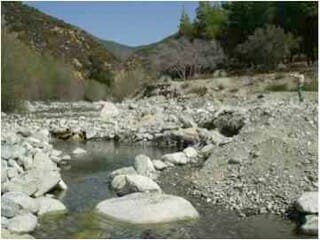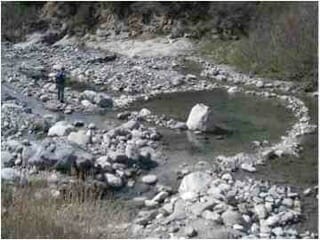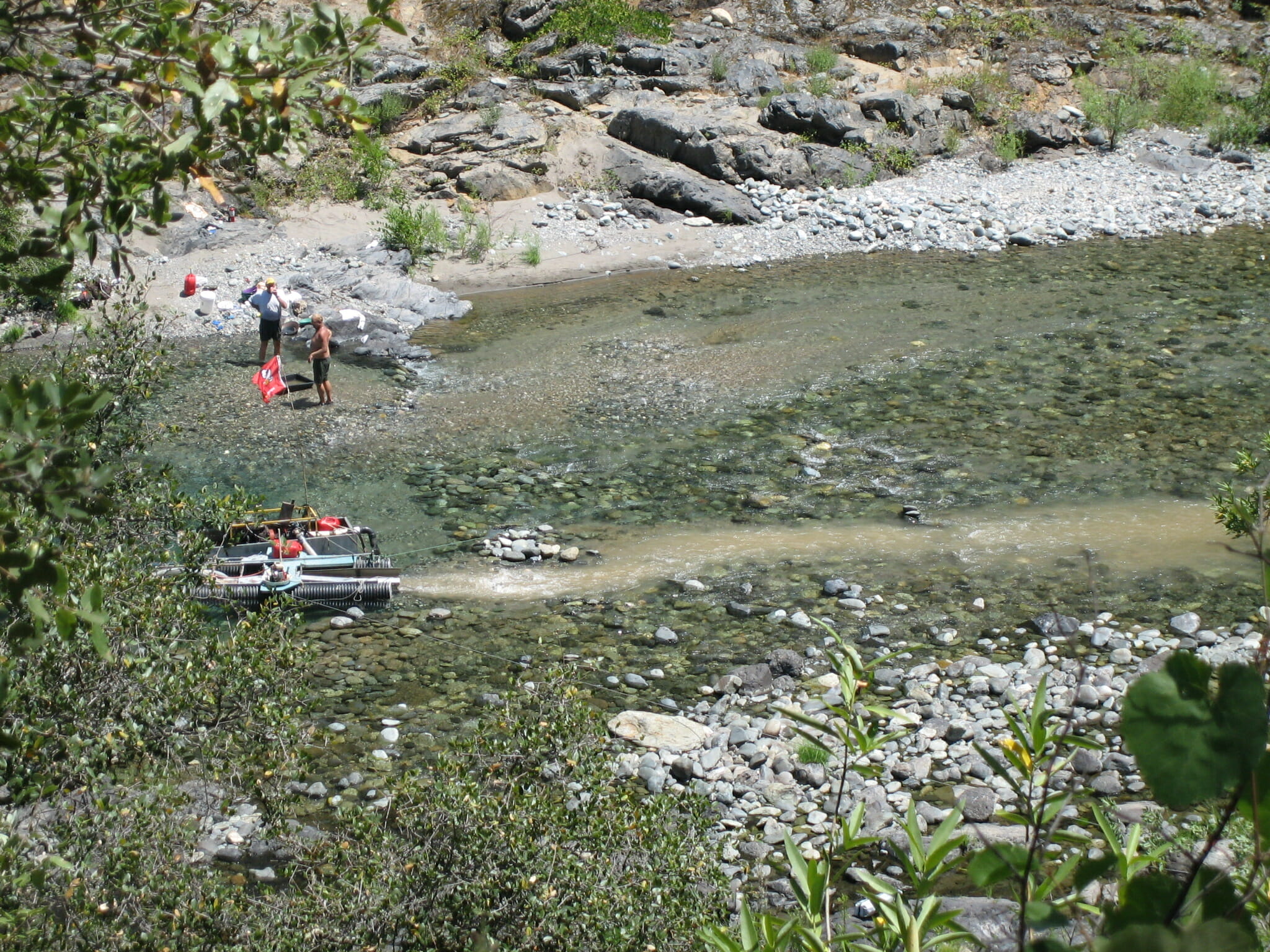As the California Water Board considers new water quality regulations for suction dredge mining, TU urges anglers to weigh in
People are still mining for gold here in the Golden State, often through small scale operations using machinery to suck water and gravel from streambeds so bits of gold can be extracted. This type of mining, known as suction dredge mining, can degrade trout and salmon habitat.
Suction dredge mining is primarily a recreational hobby in California. In recent years the California Department of Fish & Wildlife has issued about 3,500 permits per year for this activity.
 alt=”” title=”” />In 2009, the California legislature passed a moratorium on new permits for suction dredge mining while the California Department of Fish and Wildlife (CDFW) developed new regulations (to address concerns raised in a previous lawsuit regarding suction dredge mining in the Klamath River). Miners sued to overturn the moratorium. The legislature then directed the State Water Resources Control Board (SWB) to regulate suction dredge mining under the federal Clean Water Act.
alt=”” title=”” />In 2009, the California legislature passed a moratorium on new permits for suction dredge mining while the California Department of Fish and Wildlife (CDFW) developed new regulations (to address concerns raised in a previous lawsuit regarding suction dredge mining in the Klamath River). Miners sued to overturn the moratorium. The legislature then directed the State Water Resources Control Board (SWB) to regulate suction dredge mining under the federal Clean Water Act.
The Water Board is now in the process of adopting new rules for suction dredge mining to ensure compliance with water quality requirements.
A series of public workshops are scheduled in January, and written comments will be accepted until February 28, 2017. TU urges anglers to weigh in on this important issue (see below for a Sample Comments Letter and the dates/times of public hearings).
Among the potential impacts of suction dredge mining are alteration of spawning gravels and decrease in benthic invertebrate productivity. Some of these impacts to habitat values may be temporary, others more chronic. Mobilization of residual mercury, which can then become an ingestible form (methyl-mercury), is another concern. Today, there are 178 rivers, streams, lakes, and reservoirs in California officially impaired by mercury, including the twelve largest water supply reservoirs in the state.
The SWB is considering a variety of actions, including prohibiting issuance of suction dredge permits in mercury-impaired waters. This action would better protect important trout and salmon streams such as the Klamath, Yuba, American, Tuolumne, and Merced rivers.
But many other cold water fisheries are not (yet) listed for mercury impairment. Due to the many pressures California’s native trout, salmon and steelhead already are under, the Water Board should restrict or prohibit suction dredge mining in all waters that support native trout, steelhead and salmon—including state designated Wild and Heritage Trout waters.
 alt=”” title=”” />(R) Suction dredge mining impacts, EF San Gabriel River
alt=”” title=”” />(R) Suction dredge mining impacts, EF San Gabriel River
The East Fork of the San Gabriel River is one such water. This popular trout stream has populations of remnant southern steelhead, and an extensive history of mining. Inexplicably, it hasn’t been declared impaired for mercury. Streams such as the EF San Gabriel should be off limits to suction dredge mining to protect water quality and habitat.
The Water Board should consider restricting, or prohibiting, suction dredge mining in waters that:
- provide habitat for native, at-risk, or endangered fish species;
- are already impaired or could be impaired by mercury or sediment;
- are designated as Wild and Scenic Rivers or Wild and Heritage Trout Waters;
- are significant sources of drinking water
California’s trout and salmon are struggling in many waters from a variety of stressors, including impacts associated with the warming climate, drought, excessive diversions, and invasive species. We need to make sure all uses of these waters are sustainable, in terms of protecting habitat and water quality. Regulating suction dredge mining to protect water quality, especially in streams which are sources of clean water for human use as well as habitat for fish and wildlife, makes sense. Please attend one of the SWB’s public workshops and submit comments by email today.
PUBLIC HEARING SCHEDULE
Wednesday, January 18, 2017
1-5 p.m.
Elks Lodge
2055 Elks Drive, San Bernardino
Tuesday, January 24, 2017
4-7 p.m.
Karuk Community Room
39051 Highway 96, Orleans
Wednesday, January 25, 2017
1-5 p.m.
Redding City Chambers
747 Auditorium Drive, Redding
Monday, February 6, 2017
1-5 p.m.
CalEPA Headquarters Bldg.
Byron Sher Auditorium
1001 I Street, Second Floor, Sacramento
For more information on this process, go to:
http://www.waterboards.ca.gov/water_issues/programs/npdes/docs/revised_notice_suction_dredging_pub.pdf
SAMPLE COMMENTS LETTER
Comment Letter—Potential Actions to Protect Water Quality from Suction Dredge Mining
State Water Resources Control Board
Div. of Water Quality – NPDES Unit
P.O. Box 100
Sacramento, CA 95812-0100
Via email: suctiondredgecommentletters@waterboards.ca.gov
Dear Water Board:
I support California’s commitment to protecting water quality and our state’s fresh water fisheries from the impacts of suction dredge mining.
The California Department of Fish and Wildlife has determined that suction dredge mining can cause adverse impacts to water quality and habitat values. Many of our state’s most important trout and salmon fisheries depend on waters where suction dredge mining takes place.
Therefore I urge the Water Board to adopt regulations that require compliance with federal and state water quality standards, and to prohibit suction dredge mining in waters that are impaired for mercury or sediment, provide critical habitat for native and at-risk species of trout and salmon, waters with special federal or state designations (such as California Wild and Heritage Trout waters), or that are critical sources of drinking water. Such waters include the North Fork American, the Klamath, and the East Fork San Gabriel rivers.
Suction dredge mining in California is practiced by only a small number of residents and visitors. As our native trout, steelhead and salmon continue to struggle in the face of drought, climate change, and other pressures, we must ensure that this activity does not degrade our water supply or cause lasting harm to our trout and salmon fisheries.
Thank you,
(name, address, email)



